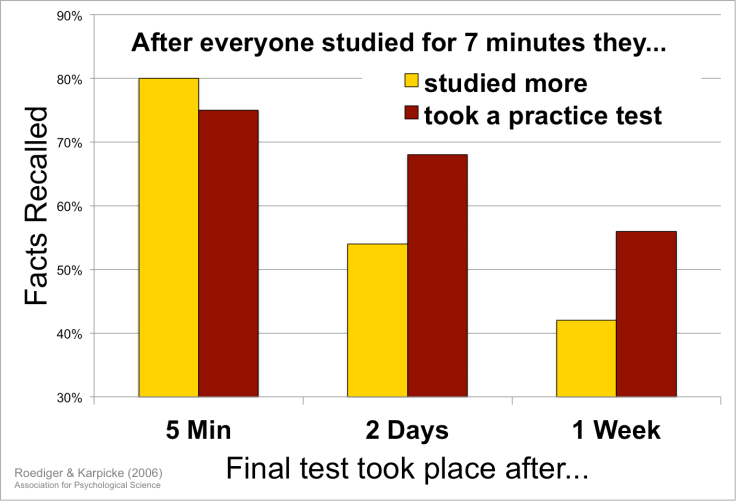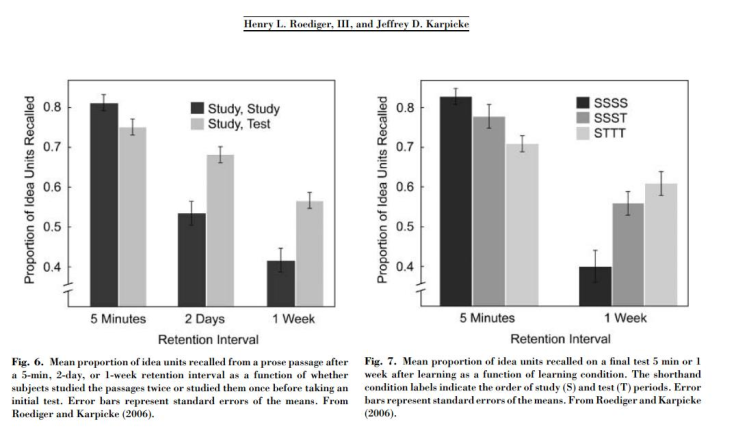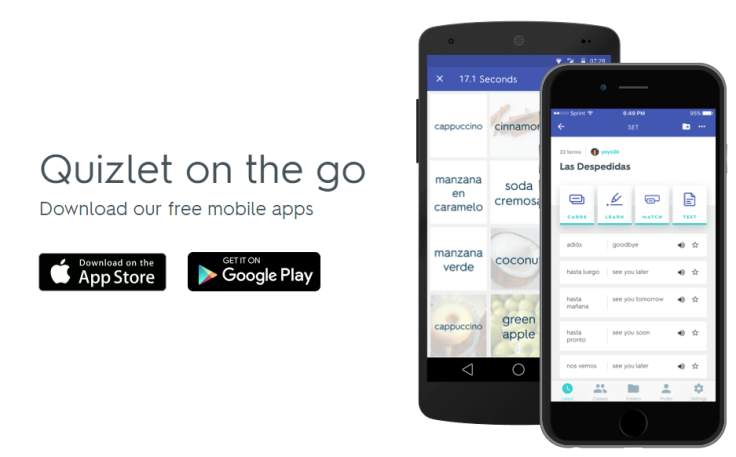How do we retain information that we have learned?
Learning is a change in long-term memory. If there is no change in long term memory then no learning has taken place.
There have been thousands of scientific studies on the best ways to help your brain to retain information.
Studying material you have already learned is one way to retain it. There are many ways to study but some are definitely more effective than others.
Retrieval practice is one effective way to study.
Retrieval practice is forcing yourself to recall the information you have learned. It is sometimes referred to as “bringing information to mind”
It works.
In a classic experiment on retrieval practice, students were all asked to learn some material by studying it. They read over the material and highlighted or took notes. They were all given 7 minutes to do this. Half the students then took a practice test while the other half were given more study time.
All the students were then given a 5-minute break.
They were then tested on the material.
The ones who had studies longer did better on the test. This seems logical. More time studying means better results.
But when the students were tested on the same material 2 days later, the ones that had taken the practice test did better. They had the better long-term recall. The same result happened when they were tested after a week.

This study is similar but this time students were split into three groups. One group read and studied a passage 4 times. They are called the SSSS group. The second group read and studied the material 3 times and then did a practice test on it. (SSST). The third group studied the material once and then did three practice tests. After each test, they were given feedback on their correct and incorrect responses.

Once again you can see the group that did the practice tests did worse after 5 mins but much better after a week.
So what do we do about all that?
- Force your brain to retrieve information.
- Study your material by reading it, then put it away and try to recall it without referring back to it.
- Makeup practice questions.
- Make flash cards with a question on one side and the answer on the other.
Flash cards are an old school, low tech solution.
Most of us now have mobile phones we carry with us everywhere.
The best app for retrieval practice is called quizlet.
It is free and students should have it installed on their phones and should be using it regularly.
Most teachers at Drouin Secondary College have created vocab banks on Quizlet for students to use.
Once students have the app on their phone they can open one of these quizlets up and do a quick matching game, or recall test on it. Or they can just study it like the paper-based flash cards.
The beauty of the mobile app is the instant feedback and the ability to study a set of terms in less than a minute. Students can do it on the bus, on the train or during the commercial breaks on their favourite TV show.
Every little bit of retrieval practice helps your long term recall.
Spacing out your retrieval practice combats the forgetting curve as well.
So students here is what we want you to do:
- Install the app now.
- Get started on your retrieval practice.
- Space it out over the year so you don’t forget what you have learned.
- Achieve amazing results on your exams and get into any course or career you want.
Watch this 3-minute video on Retrieval Practice.



April 12, 2017 at 11:34 am
Hey this is cool I hope this Idea is actually fun!!! 😦
LikeLike
April 13, 2017 at 9:04 am
Excellent, I know this can help me on English…
LikeLike